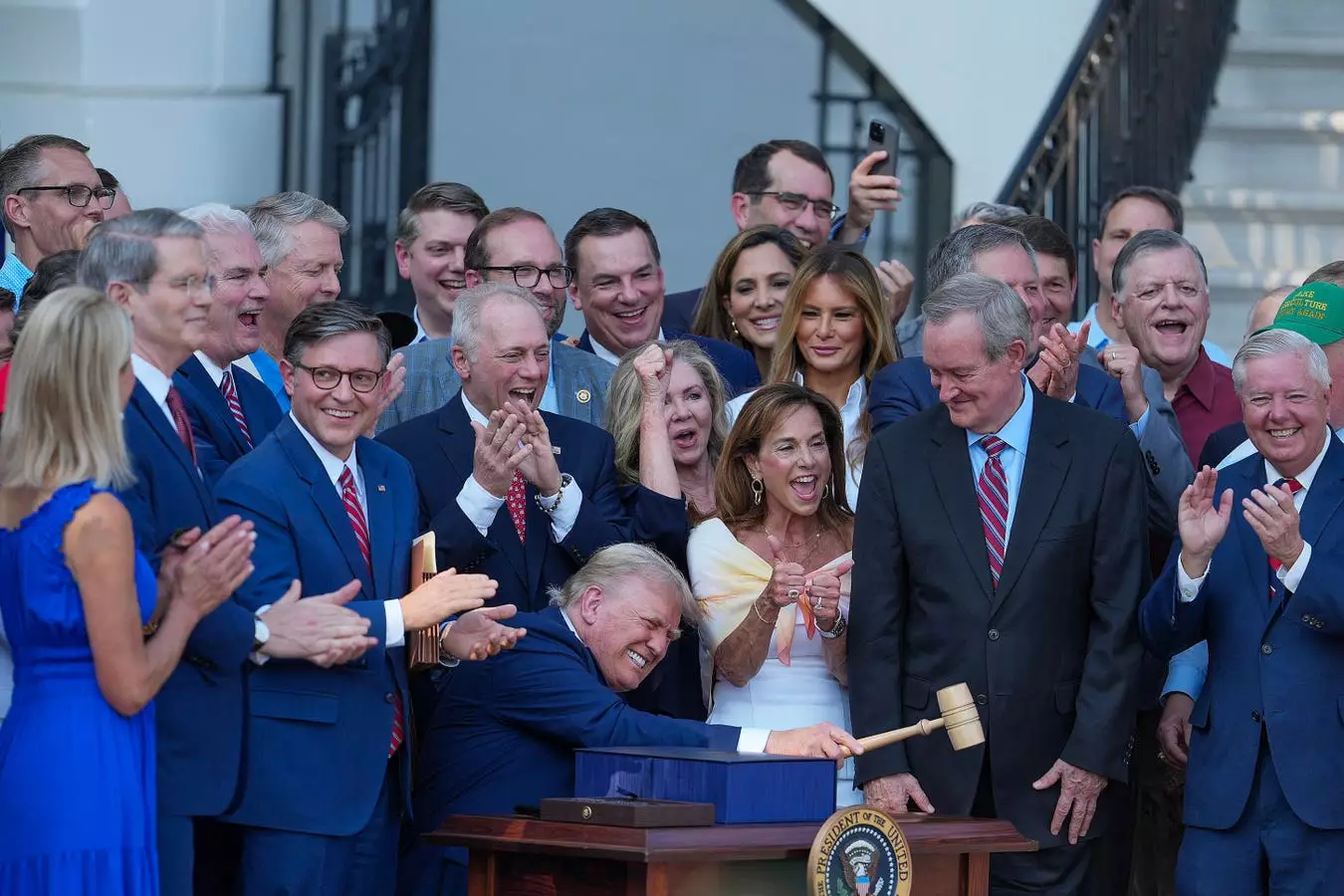The recent enactment of the “One Big Beautiful Bill Act” (OBBBA) signals a pivotal moment that threatens the very foundation of American social welfare and public health. While presented as a legislative achievement, its real-world consequences cast a long shadow over the nation’s most vulnerable populations. The staggering reductions—over a trillion dollars—target critical programs like SNAP and Medicaid, which form the backbone of food security and healthcare for millions. The undeniable truth is that these cuts will force millions into hunger and halt the progress made toward health equity, leaving a scar across communities already teetering on the edge.
The elimination of SNAP-Ed and drastic reductions in nutrition assistance insinuate a future where millions face uphill battles for basic sustenance. Experts warn that such policies could lead to tens of thousands of premature deaths, exposing a callous disregard for human life and dignity. This is not mere policy; it’s a moral crisis—shredding the safety nets that have helped millions survive economic downturns and health crises. The impact isn’t limited to individual hardship; it reverberates through local economies where grocery sales might decline, and corporate food giants could see diminished profits. Yet, the legislation continues to favor large corporations with tax breaks while quietly dismantling programs designed to uplift those in need.
Disproportionate Burdens on Immigrants and the Working Class
The OBBBA’s aggressive stance on immigration further compounds systemic inequalities. Drastically increasing funding for deportation agencies and tightening restrictions on lawful immigrants’ access to food assistance strike at core principles of fairness and inclusion. The policy paints a dystopian picture—where not only are hardworking immigrant families barred from essential support, but the flow of remittances becomes more burdensome, suppressing economic independence. For many immigrants, these policies threaten their ability to feed their families, support small businesses, and contribute meaningfully to their communities.
Amongst the legislative giveaways, there’s a glimmer of partial relief for tipped workers, with the potential for tax deductions on tips. However, this modest benefit remains inaccessible to undocumented workers—who contribute billions in taxes—highlighting yet another layer of structural inequality. The reality is that the legislation favors the privileged few while marginalizing those who serve and sustain our economy’s backbone. It amplifies disparities and smothers the prospects of those already battling systemic hurdles.
Skewed Support for Agriculture and Rural Communities
Farmers and rural residents find themselves caught in a paradoxical landscape. Legislation touts support for agriculture through tax reductions and subsidies. Yet, these policies predominantly favor large agribusinesses rather than small, independent farms that depend on equitable support to survive. The proposed $50 billion Rural Health Transformation Fund appears substantial but falls short — barely making a dent compared to the Medicaid support previously allocated. Rural hospitals and health clinics face an uncertain future, risking closures that would deprive these communities of essential health services.
Furthermore, with diminished SNAP benefits and shrinking purchasing power, rural economies could suffer significant setbacks. Food dollars spent within rural settings circulate back into local farms and stores, maintaining economic vitality. But with reduced federal support, these local economies risk hemorrhaging, deepening the rural-urban divide and stunting community resilience. It’s a stark betrayal of rural Americans who have long been the backbone of food production and traditional American values.
Climate Policies in Retreat: A Step Backward in Sustainability
Perhaps the most alarming aspect of the OBBBA is its retreat from climate leadership. Instead of building on the momentum of the Inflation Reduction Act, it halts hundreds of billions of dollars in sustainability investments. Rolling back incentives for renewable energy—wind, solar, and electric vehicles—signals a regressive approach that prioritizes fossil fuels and industry subsidies over planetary health. Supporting oil, coal, and gas exploration on protected lands not only endangers ecosystems but also perpetuates dependence on destructive fossil fuels.
This policy shift is a direct contradiction to global efforts to combat climate change and shift towards sustainable energy sources. It reflects a shortsightedness that jeopardizes future generations’ ability to thrive. The decisions made now will determine the health of our planet for decades, yet the legislative direction seems rooted in profit and vested interests rather than ecological necessity.
Grassroots Resistance: A Beacon of Hope and Change
Despite the bleak outlook painted by the OBBBA, a powerful wave of community-led initiatives and grassroots activism continues to challenge this narrative of decline. From union victories at local co-ops to school programs connecting children with farm-fresh foods, these efforts symbolize resilience and hope. Small victories—like unionization in cooperative grocery stores or innovative urban farming projects—may seem modest, but collectively they forge a movement capable of resisting destructive policies.
Every local success offers proof that collective action matters. These efforts forge stronger communities, elevate local food sovereignty, and serve as a counterbalance to top-down legislative failures. Although incremental, these movements embody an urgent truth: meaningful change is rooted in grassroots activism, and their perseverance is vital to safeguarding our collective future. Every step forward, every fight won, reaffirms the idea that sustainability and social justice aren’t just ideals—they are achievable through unwavering community effort.
—
This analysis reveals a deeply polarized landscape where policies threaten to undo decades of progress, but also where resilience and community action become vital tools for resistance. Embracing these grassroots efforts is essential if we wish to forge a future that prioritizes human rights, environmental sustainability, and economic fairness. The challenge lies in mobilizing collective consciousness to stand against policies that serve the few at the expense of the many. Our choices today will shape the world our children inherit—let’s choose wisely and act boldly.

